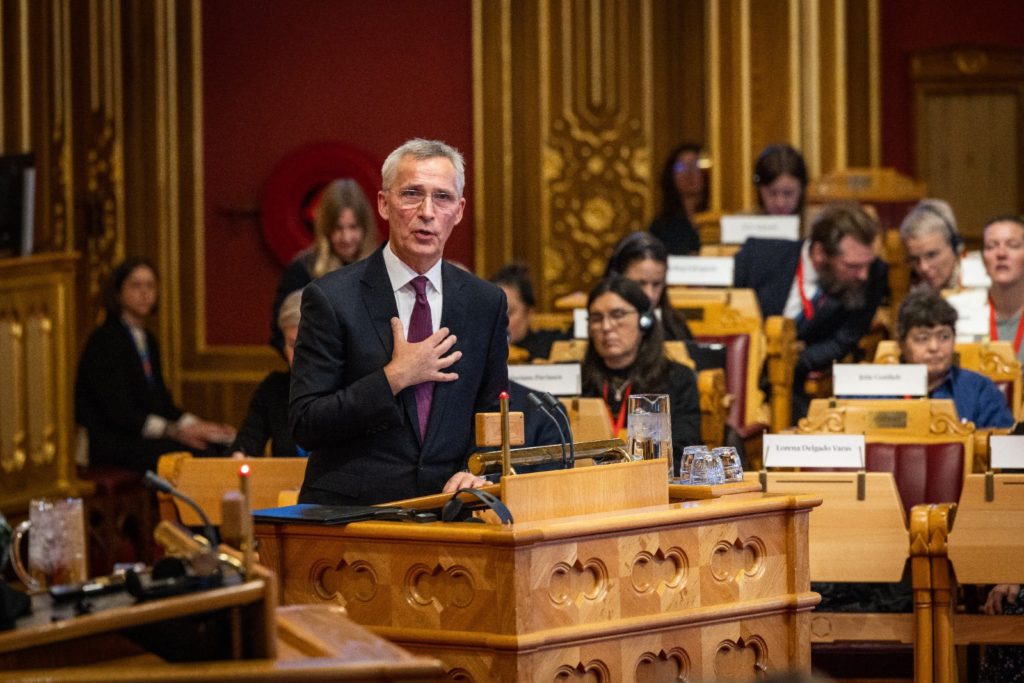Stoltenberg says Russia’s nuclear threats should not deter military aid to Ukraine
Outgoing NATO Secretary General Jens Stoltenberg has urged member countries not to be swayed by Vladimir Putin's "reckless nuclear rhetoric," adding that increased military support for Ukraine remains crucial in the face of Russia's escalating threats.


NATO members should not be deterred from giving more military aid to Ukraine by Vladimir Putin’s “reckless Russian nuclear rhetoric”, outgoing NATO boss Jens Stoltenberg told Reuters in a recent interview.
On 25 September, Putin announced updates to Russia’s nuclear doctrine, introducing “clarifications” on the conditions under which Russia might use nuclear weapons.
According to these updates, Russia will now consider using nuclear weapons in two specific scenarios: first, in the case of “aggression against Russia by a non-nuclear state with the support or participation of a nuclear state,” and second, upon “receiving reliable information about the massive launch of air and space weapons” aimed at Russia, with these weapons crossing Russian borders.
Putin specified that the “air and space weapons” that could justify Russia’s use of nuclear weapons include strategic and tactical aviation, cruise missiles, drones, and hypersonic missiles.
Stoltenberg said that the Russian ruler’s claims came as the US and allies consider letting Ukraine target military targets inside the Russian territory – bases, airfields, and areas from where Russian troops launch Shahed drones and missiles.
“Every time we have stepped up our support with new types of weapons – battle tanks, long-range fires, or F-16s – the Russians have tried to prevent us,” Stoltenberg explained.
However, the NATO chief underlined that as the Kremlin has not succeeded in disrupting Western military aid, the latest nuclear doctrine changes should not prevent NATO allies from supporting Ukraine.
He said NATO had not detected any change in Russia’s nuclear doctrine “that requires any changes” from the side of the Alliance.
Jens Stoltenberg emphasized that there is “no silver bullet” capable of transforming the situation on the battlefield. Yet, he noted that conducting deep strikes within Russia could play a significant role in the wider Western strategy to support Ukraine in resisting Russia’s aggression.
Additionally, Stoltenberg highlighted that any negotiated resolution to the war must incorporate security guarantees for Ukraine, particularly from Western powers, especially from the US.
Related:
- The dark truth behind NATO’s “fear of Russian escalation”
- US, UK spy chiefs praise Ukraine’s Kursk incursion, say West shouldn’t fear Russia’s nuclear threats
- Russia resorts to nuclear blackmail amid Ukraine’s Kursk incursion
- Putin’s nuclear threats proven hollow as Ukraine invades Russia, expert says



